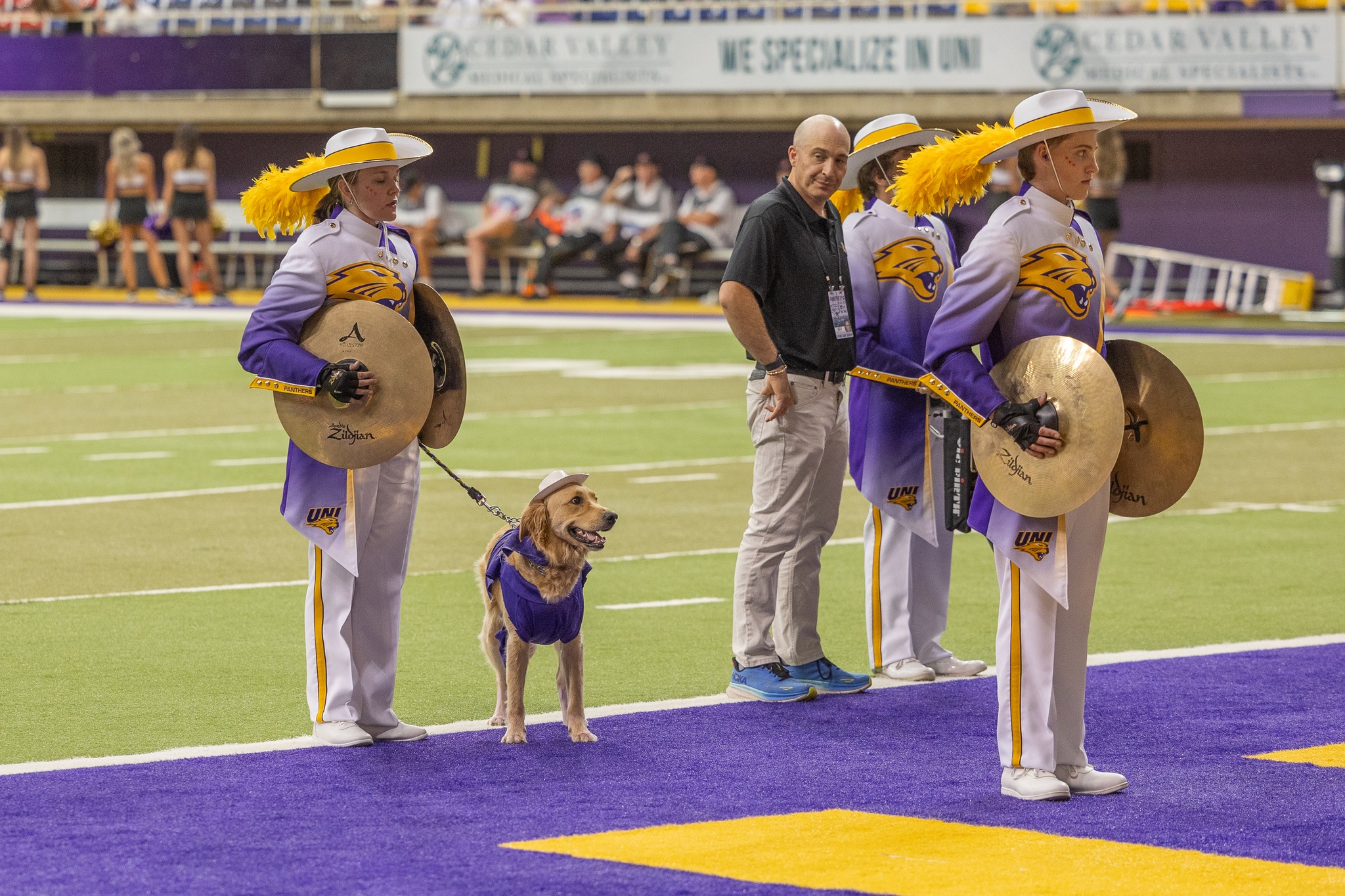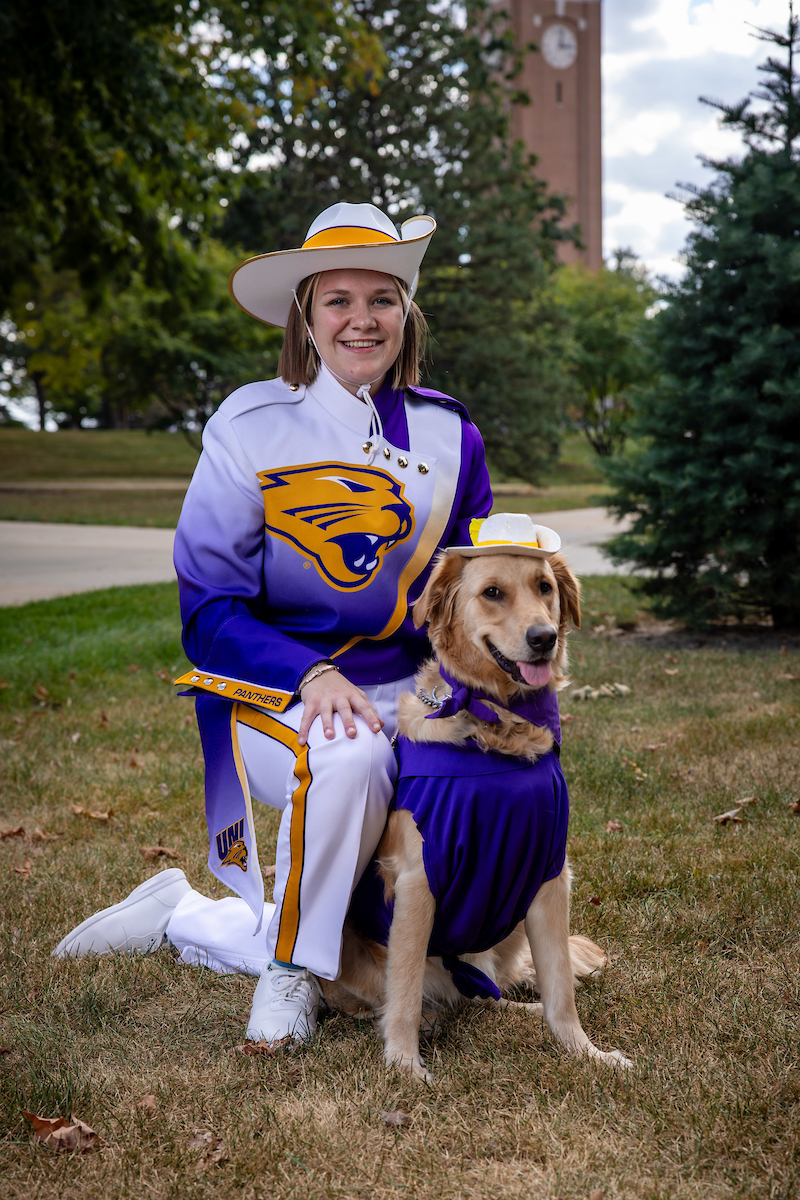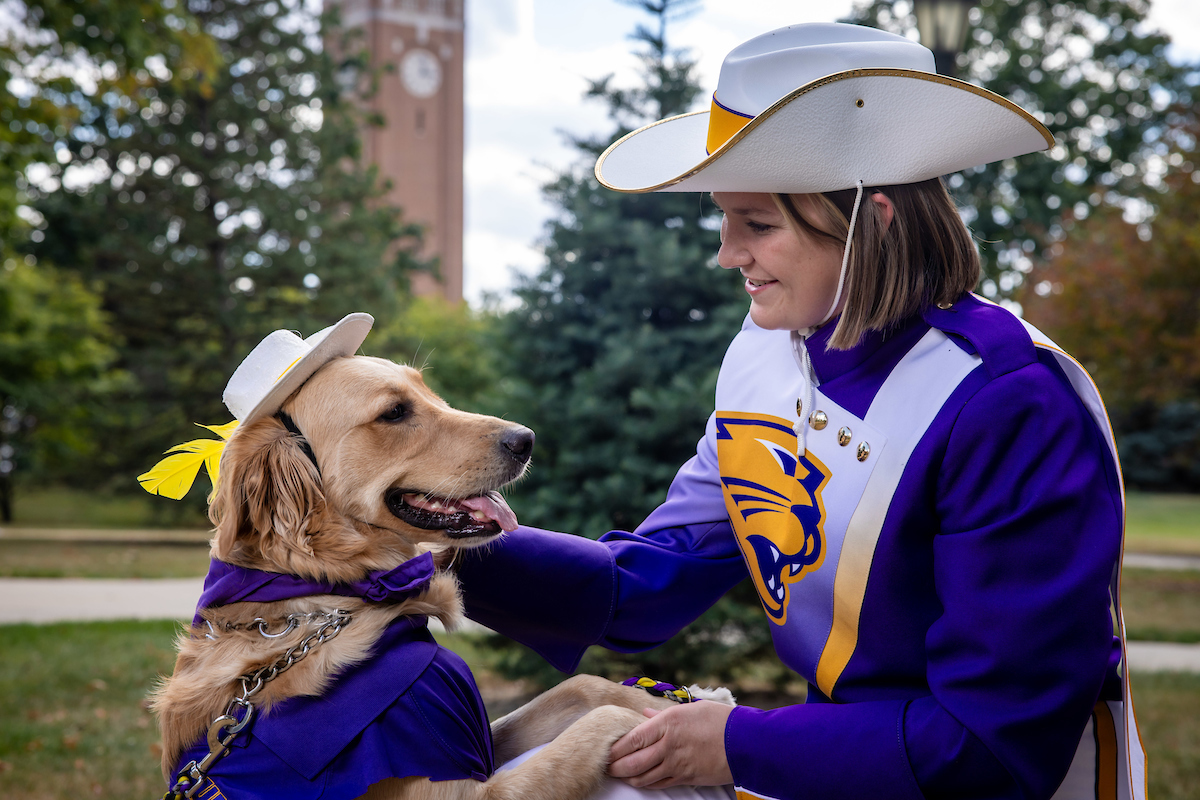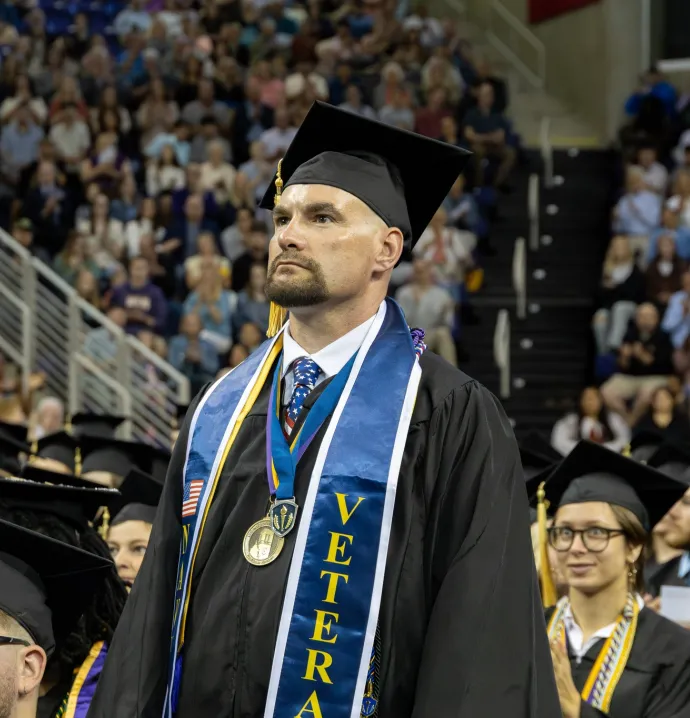Support dog takes the ranks among Panther Marching Band
Support dog takes the ranks among Panther Marching Band

When you see the Panther Marching Band, you may notice an unfamiliar face — or snout, rather — on the field. Decked out in PMB gear in the frontline is a golden retriever, Winnie. In spite of the loud musical ensemble around her, Winnie stays calm and collected, as her human, sophomore Gabi Riessen, carries out her duties in the percussion section.
Transferring to UNI with Winnie by her side
Riessen has had Winnie, her service dog, for about 18 months. A transfer majoring in elementary education from Denison, Iowa, Riessen began her college journey with Winnie at a school out of state. As a self-proclaimed “fine arts kid,” she wanted to participate in band and theater in college but was met with obstacles at her first school because she uses a service dog. After her freshman year, Riessen chose to transfer to UNI where two of her friends attended school. Their experience gave Riessen hope that she would get the full college experience she craved at UNI.
“One of my best friends, Ren — she's on the color guard team, and she told me about how much she loved it and how amazing Director Justin Mertz is,” said Riessen. “So she gave me his email, and I reached out to him to see if being in the band with my dog could even be a possibility, and we met and talked about it. I think he's more excited to have a dog in the band than I am.”
Even though Mertz quickly agreed to let Riessen participate, there was some uncertainty about what she would and wouldn’t be able to do with Winnie.
“When I came in, we weren't sure if I was going to march or if I was just going to be in the frontline,” she said. “Mertz said, ‘Let's try it,’ and we did. Usually, Winnie isn’t spatially aware of things. But when we would march forward and backward, she picked it up no problem. Honestly, I think she's a better marcher than me. She's just really good at adapting to any situation I put her in.”
To protect her hearing, Winnie wears headphones while Riessen and her fellow PMB players perform. With time, Riessen believes Winnie has not only adapted to being an unofficial member of Panther Marching Band but has also come to crave the extra attention.
“There’s so many people watching her, and she eats it up,” said Riessen. “She loves the attention. Every time I would walk by, the whole student section would ask, ‘Can I pet your dog?’ She just likes feeling helpful and useful.”
Winnie helps Riessen navigate her postural orthostatic tachycardia syndrome (POTS), which causes her to pass out without warning. While Riessen has a hard time determining when a fainting spell is coming on, Winnie is trained to pick up on changes in her owner that precede fainting. By being alerted to these changes, Riessen is able to get to a safe spot to avoid hurting herself. Winnie then lies beside Riessen and protects her.
Unlike with other service dogs, Riessen does not mind if people pet Winnie. Her dog comes with her to class, and Riessen allows her professors to pet her dog so Winnie feels comfortable around them.
“If we're not doing anything, I'll let them pet her because she deserves to be a dog and to have fun because I would hate for her to just be so structured that she misses out on that,” she said.
Often, Winnie just sleeps through Riessen’s classes.

Finding her “soul dog”
Riessen developed POTS about two years ago. When she heard about a litter of golden retriever puppies being born in her hometown, she jumped at the chance to get a pet that would become her service dog.
Riessen went to visit the litter of puppies set on coming home with a boy dog. At the time, there were two puppies left: Winnie and her brother.
“When I met with their owner, he said the girl puppy is very shy and doesn’t like many people, but Winnie immediately went over to me and sat in between my legs and wouldn’t leave,” she said. “The guy immediately grabbed the papers for her even before I fully decided because he knew she chose me. I, of course, chose her because we had this connection from the beginning, and even though I was set on a boy, she was my soul dog.”
Riessen then sought the assistance of a trainer in Omaha. After working with Winnie for a few sessions, the trainer released Winnie to Riessen to finish training.
For Riessen, Winnie is so much more than a pet. She provides her with a sense of normalcy that she questioned she would be able to have in college.
“Winnie has made it where I can be like a normal person again,” said Riessen. “I can do band, because she'll let me know if I'm okay, and I can go to my classes. Before her, we didn't know if college was going to be an option.”
Riessen is grateful for the support not only that Winnie provides, but also the support she has received from the UNI community as a whole. Even though she is only a few weeks in, the support has been overwhelming — in a good way.
“I'm not gonna lie, I cried after the first couple days of being here, because I've never felt so welcomed before,” she said. “Obviously, I don't have a visible disability. So some people look at me and wonder why I need a dog. At UNI, I walk around and everyone gets excited to see a dog. It just makes me feel good. I belong here.”





